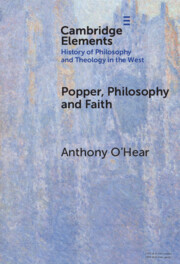Refine search
Actions for selected content:
1 results

Popper, Philosophy and Faith
-
- Published online:
- 23 May 2025
- Print publication:
- 12 June 2025
-
- Element
- Export citation
